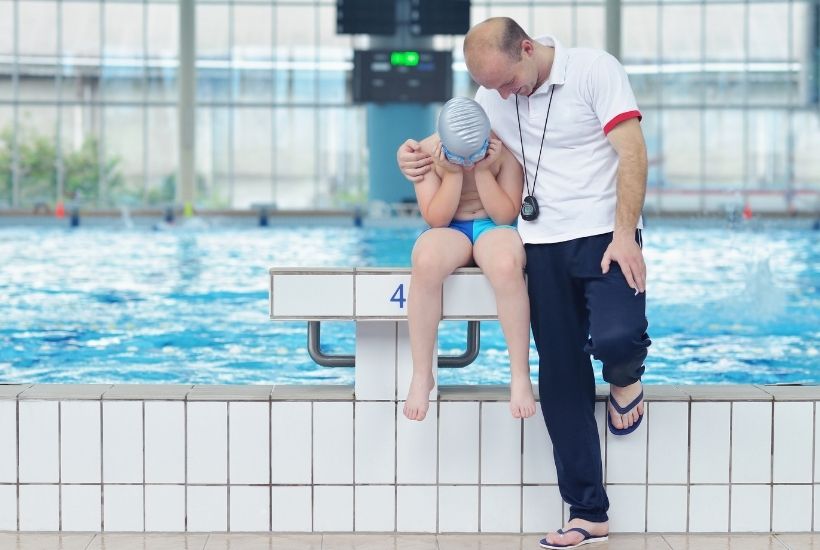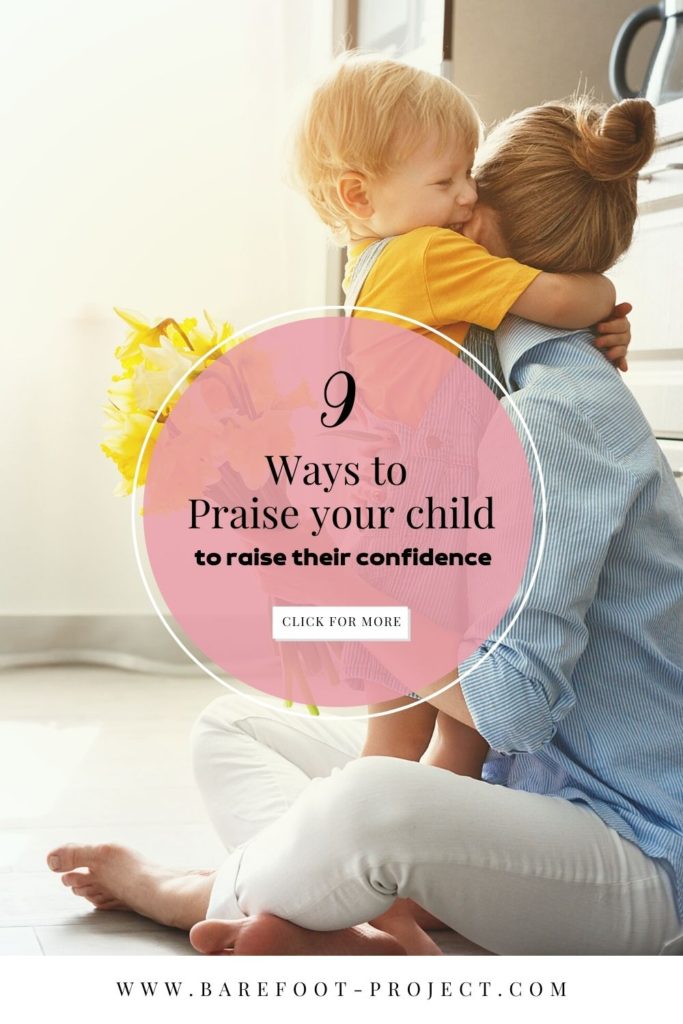How to Praise Your Child to increase their confidence
Do you want your child to feel confident and successful?
Of course, you do!
The best way to achieve this is by praising them the right way.
Unfortunately, many parents make the mistake of praising their children in a way that actually decreases their confidence.
In this blog post, we will discuss 9 ways to praise your child in a way that will help them succeed! And 5 things you need to avoid when praising your child

12 Ways to Boost Your Child’s Confidence:
- Give specific praise about their effort
- Make sure your compliment is genuine and meaningful
- Help them know their strengths and needs
- Be consistent in giving them positive affirmations
- Listen to how they feel and what they want
- Encourage them to try new things
- Give them positive reinforcements
- Let them know that they are capable of anything!
- Let them know that they are loved no matter what
1) Give specific praise about their effort.
It is important to praise your child’s effort rather than their intelligence or ability.
For example, if you say, “You’re so smart! You got an ‘A’ on that math test!” your child might think they are only good at math because they are smart.
However, if you say, “You did a great job on that math test! You worked really hard, and it paid off!” your child will understand that they can do well in math because they are willing to put in the effort.
This is important because you want your child to understand that they can improve and succeed in any area of their life, as long as they are willing to put in the effort.
Giving specific praise about their effort will also help them understand that you value their hard work and dedication.

2) Make sure your praise is genuine and meaningful.
Make sure that you are being genuine when you praise your child.
Then, they will be able to tell if you are just saying something nice to them out of habit or if you genuinely mean it.
When your child knows that you are being honest with your praise, they will be more likely to believe in themselves.
Your praise should also be meaningful.
For example, if you tell your child “Good job!” after every little thing they do, they will start to think that you don’t really mean it.
However, if you save your praise for when they accomplish something truly impressive, they will know that you really mean it when you say it.
This is important because you want your child to understand that their accomplishments are valuable to you and that you are proud of them.

3) Help them know their strengths and needs.
One way to help your child’s self-confidence is to help them understand their strengths and needs.
This can be done by assisting them in realizing their good traits and strengths.
When your child knows their strengths, they will be more likely to believe in themselves and their abilities.
But, on the other hand, when they know their needs, they will be more likely to work on achieving their goals and do things that they genuinely love and want.
This is important because you want your child to have a healthy balance of self-confidence and motivation.
Helping your child understand their strengths and needs is a great way to increase their self-confidence.
It will also help them set realistic goals and work towards things they truly love.

4) Be consistent in giving them positive affirmations.
If you want to help your child’s self-confidence, it is crucial to consistently give them positive affirmations.
For example, you should regularly tell them how proud you are of them and how much you love them.
It is important to be consistent because your child might start to doubt your sincerity if you only give praise occasionally.
But, on the other hand, if you always tell them how proud you are of them, they will start to believe it and feel good about themselves.
You can also use affirmations to help your child understand their strengths and needs.
For example, you can say, “I noticed that you worked really hard on that project. You are such a determined and hard worker!”
I like using a technique I call the hand band technique, where I wear three-hand bands in one hand to make sure that I notice and affirm three efforts daily that my child does.
This is a great way to increase your child’s self-confidence because it shows that you always pay attention to their efforts and accomplishments.
It also helps them to understand their strengths and needs.
5) Listen to how your child feels and what they want.
When your child is telling you about their day, take the time to listen to them.
This shows that you are interested in what they have to say and value their opinion.
This will help your child feel more confident and secure in themselves.
Many parents feel that they do not have time to listen to their children.
However, it is important to make time for listening because it can help build a strong relationship with your child.
When you listen to your child, they will feel like you value them and their opinion.
Listening to your child will also help you understand their thoughts and feelings.
This can be helpful when you are trying to build their self-confidence.
For example, if your child is feeling insecure about a situation, you can offer them words of encouragement.
This will help them feel better about themselves and the situation.
6) Encourage them to try new things.
One of the best ways to boost your child’s confidence is to encourage them to try new things.
If they are feeling scared or unsure, be there to support them.
This will show them that you believe in their abilities and are there for them no matter what.
But please don’t push them to do something if they don’t want to because children should learn to trust their gut and trust their instinct.
Instead, ask questions?
Be curious about how they feel? And just be there to listen and support, not judge or critique.
Children are often scared to try new things because they are afraid of failing.
However, it is important to encourage them to take risks.
This will show them that you believe in their abilities and that they can accomplish anything they set their mind to.

7) Give them positive reinforcement.
When your child does something good, give them positive reinforcement.
This will help them feel good about themselves, encouraging them to do more good things.
For example, “I’m so proud of you for cleaning up your room! You’re such a good helper!”
It is important to be specific when you give positive reinforcement.
This will help your child understand what they did that was good and why you are proud of them.
For example, “I’m so proud of you for cleaning up your room! You’re such a good helper!” is better than saying “Good job!”
Positive reinforcement is a great way to build your child’s self-confidence.
It will help them feel good about themselves and encourage them to do more good things.
8) Let them know that they are capable of anything!
One of the most important things you can do for your child’s self-confidence is to let them know that they are capable of anything.
This means that you believe in their abilities and think they can accomplish anything they set their mind to.
For example, “I know you can do it! I believe in you!”
This powerful message will stay with your child for a long time.
It will help them to believe in themselves and their abilities. It will also encourage them to take risks and try new things.
Confidence is something that your child will carry with them throughout their life.
By praising them the right way, you can help them to develop a strong sense of self-confidence. This will benefit them in all areas of their life.
Let them know that they are loved no matter what
The most important thing you can do for your child is to let them know that they are loved no matter what.
It’s not just about love but rather about support.
Teach your child that mistakes are welcomed as long as they learn from them.
They should always know that they will never be a disappointment. That’s why positive affirmations are so meaningful for children to hear regularly.
“I love you no matter what” is one of the most important things you can say to your child.
It will help them to feel loved and supported no matter what. This powerful message will stay with your child for a long time.
This will help them feel confident and secure in themselves.
Tell them that you love them every day and show them your love through your actions.

5 Things to avoid when giving praise
- Using sarcasm
- Giving bribes
- Using criticism along with praise
- Comparisons
- Using empty praise
When a child does something good, the parent needs to give praise.
But there are many different ways of giving praise, and not all of them will increase your child’s confidence.
After talking about how to praise your child, I think it’s important to know what to avoid when praising children.
And how you can avoid things that could lower their self-esteem or make them feel bad about themselves.
1) Avoid using sarcasm
Sarcasm can be pretty confusing for children and can also be hurtful.
For example, if you say “Good job on that math test!” in a sarcastic tone, your child will likely not understand what you are trying to say, and they might feel discouraged.
Instead, avoid sarcasm when praising your child and stick to genuine compliments.
When you say “Good job on that math test!” in a sarcastic tone, your child will likely not understand what you are trying to say, and they might feel discouraged.
So instead, try to avoid using sarcasm when praising your child and stick to genuine compliments.
Saying things like “I’m so proud of you for getting an ‘A’ on that math test! You did a great effort!” will make your child feel good about themselves and encourage them to do more good things.
On the other hand, saying things like “Good job on that math test! You finally got a good grade!” in a sarcastic tone will make your child feel bad about themselves and discourage them from doing better.
2) Avoid using bribes
Many parents use bribes to try and get their children to do things.
For example, “If you clean up your room, I’ll buy you a toy.” This might work in the short term, but it can actually be quite harmful in the long run.
Your child will start to expect a reward every time they do something, and they won’t learn to do things simply because it is the right thing to do.
This is called extrinsic motivation, and while motivation is good, some extrinsic motivation is bad because it can lead to a person doing something not out of interest but rather for the rewards associated with it.
When you give your child a reward for doing something good, they might think they only have to do things if they get something in return.
This can lower their self-confidence and feel like they are not good enough.
Try to avoid using bribery and instead focus on giving genuine praise.
Saying things like “Great job on cleaning up your room! You did an excellent job!” will make your child feel good about themselves and encourage them to do more good things.
On the other hand, saying things like “If you clean up your room, I’ll give you a candy bar” will extrinsically motivate your child, and they will eventually not do things unless they get something in return.

3) Avoid using criticism along with praise.
When you give your child praise, make sure that it is unaccompanied by criticism.
For example, if you say, “You did a great job cleaning up your room,” don’t follow it with “But you still need to put away your toys.” This will only confuse your child and make them doubt your sincerity.
Instead, make sure it is genuine and unconditional when you give praise.
Saying things like “Good job on cleaning up your room! You did an outstanding job!” will make your child feel good about themselves and encourage them to do more good things.
On the other hand, saying things like “You did a good job cleaning up your room, but you didn’t make your bed” will make your child focus on the negative, and they might feel discouraged.
Praising your child the right way is important for their self-confidence. Avoid using sarcasm, bribery, or criticism when giving praise.
Instead, stick to genuine compliments and let them know that you are proud of them.
This will encourage them to do more good things and help them feel good about themselves.
4) Avoid comparison
It is important not to compare your child with other children or siblings.
Each child is unique and has their own set of strengths.
When you compare your child to others, it can make them feel inferior and decrease their confidence.
Instead, just focus on praising your child for the things they do well and support them no matter what.
When you are praising your child, avoid comparing them to other people.
For example, don’t say, “You did a great job on that math test! You got a better grade than Jimmy!” This will only make your child feel bad about themselves and encourage competition instead of cooperation.
Try to focus on your child’s individual progress and praise them for their own accomplishments.
Things like “Good job on that math test! You worked really hard, and it paid off!” will make your child feel good about themselves and encourage them to keep doing their best.
5) Avoid empty phrases
It is important to be specific when you praise your child.
Avoid using empty phrases or clichés that don’t really mean anything.
For example, instead of saying “Good job!” try to say something specific like, “Great job on tying your shoes! You did it so quickly!”
Being specific shows that you are really paying attention to what your child is doing and that you are proud of their accomplishments.
It will also help them understand what they did well so they can continue doing it in the future.

What about Making Mistakes and failing?
We all know that making mistakes is a part of life. But for children, making mistakes can be especially discouraging.
That’s why it’s important to let your child know that it’s okay to make mistakes and that you will still love them no matter what.
Be there to support them when they make a mistake and help them learn from it. This will help them become more confident in themselves, and it will encourage them to try new things.
In fact, mistakes are very important for a child’s development. It’s how our brain grows, and it’s how we help our children develop a growth mindset.
We should always be there to help them, guide them and support them. And most importantly, love them no matter what.
When your child makes a mistake, instead of telling them what they did wrong.
Ask them what they think they did wrong.
Ask them what they learned from this mistake and how they will handle it next time.
Then praise them for making a mistake and learning from it.
This will help them learn from their mistakes, and it will help them become a better person.
For example, “I’m proud of you for admitting that you made a mistake. You are learning from your mistakes, and that is very important.”
To Learn more about the importance of making mistakes check out this post or read this book

To Roundup
When praising your children, it’s important to do so the right way!
Avoid giving them empty praise or telling them what they did wrong. Instead, be specific about their accomplishments, encourage them to set realistic goals, and let them know that they are loved no matter what.
Praising your children the right way is essential to boosting their confidence.
Be specific about their accomplishments, encourage them to set realistic goals, and let them know that they are loved no matter what.
With these 9 steps, you can help increase your child’s confidence!







2 Comments
Comments are closed.